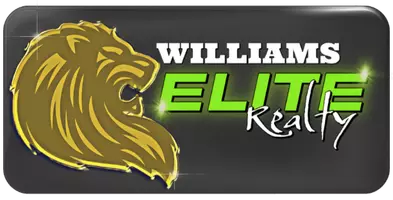| Item | Low | High | Notes |
|---|---|---|---|
| Down Payment | $7,000 (3.5%) | $40,000 (20%) | Program-dependent (FHA/VA/USDA/Conventional) |
| Closing Costs (2%–5%) | $4,000 | $10,000 | Lender, title, recording, etc. |
| Appraisal | $400 | $650 | Varies by property/loan type |
| Inspection(s) | $300 | $700+ | General + optional (radon/termite/septic/chimney) |
| Prepaids/Escrows | $800 | $2,000 | Initial months of insurance & taxes |
| Moving/Setup (est.) | $300 | $2,500 | Movers, truck, utilities, small fixes |
| Estimated Cash to Close (range) | $12,800 | $55,850 | Down payment drives most variance; credits can reduce totals. |
Illustrative only—not a quote. Amounts vary by county, lender, loan type, and property.
Plan Your Kentucky Home Costs
Lower your cash to close and see your monthly payment with taxes & insurance for your county.
Ask us how to reduce cash to close with credits and programs.
TALK WITH A LOCAL AGENTSee your monthly payment with taxes and insurance by county.
CALCULATE MY MONTHLY PAYMENTLocal team • Same-day reply • No spam
28/36 DTI Smart Budgeting Calculator
Estimate a safe monthly housing payment using the 28/36 debt-to-income guideline. Enter your gross monthly income and regular debts to see your target housing payment and, optionally, a full household budget view including utilities.
Add Your Monthly Debts (up to 10)
Results
Household Budget View (optional)
Frequently Asked Questions
A: A common target is 3%–6% of price in combined cash (earnest money, down payment, and closing costs). Program, credits, and price will change the total.
A: Sometimes, yes. Seller or lender credits can offset costs—ask your agent to structure the offer accordingly.
A: Prepaids are upfront items like initial insurance and property taxes. Many loans require an escrow account that collects a portion monthly.
A: Yes. Taxes and assessments vary by county/city and impact your monthly escrow. Your lender will estimate these based on location and assessed value.
Kentucky Home Buying Glossary: Key Terms You’ll See
Quick, plain-English definitions to help you understand buyer costs and loan terms in Kentucky. For the full A–Z list, visit the Buyers Glossary.
| Term | Plain-English Definition |
|---|---|
| Earnest Money (EMD) | Buyer deposit applied to cash-to-close; usually refundable under protected contingencies. |
| Prepaids | Upfront insurance/taxes collected at closing to start your escrow account. |
| PMI | Private Mortgage Insurance on many Conventional loans with less than 20% down. |
| Points | Optional fee to reduce your interest rate; value depends on pricing and timeline. |
| Escrow | Servicer-held account for taxes/insurance funded monthly with your payment. |
Get the Free Kentucky Home Buying Cost Guide (PDF)
See your full cost breakdown in minutes—including down payment, closing costs, prepaids, and monthly payment—personalized to your price range and Kentucky county.
Your information is secure and never sold, No scams.
Continue Learning
Ready to run your numbers and take the next step?
